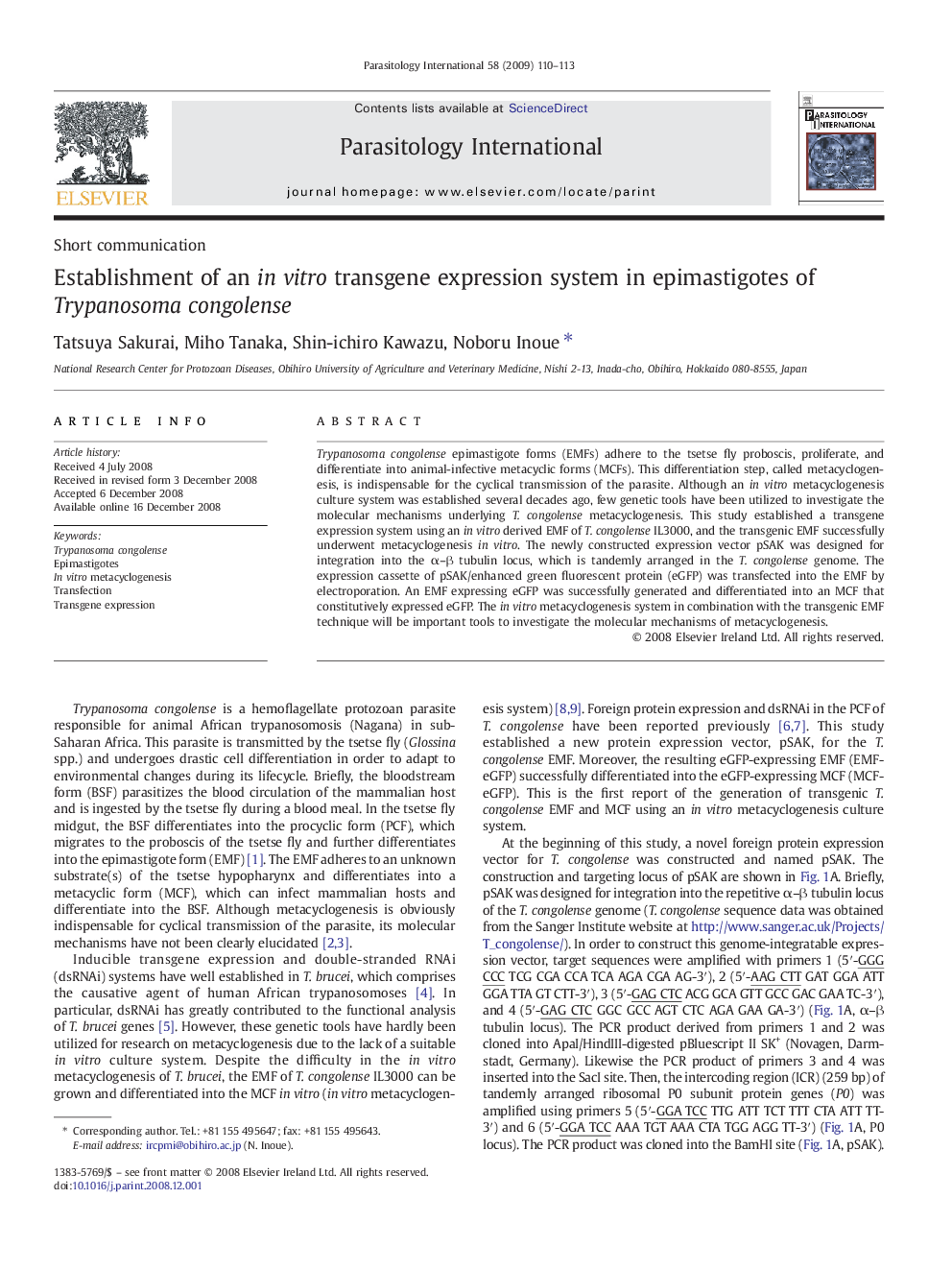| Article ID | Journal | Published Year | Pages | File Type |
|---|---|---|---|---|
| 3418163 | Parasitology International | 2009 | 4 Pages |
Abstract
Trypanosoma congolense epimastigote forms (EMFs) adhere to the tsetse fly proboscis, proliferate, and differentiate into animal-infective metacyclic forms (MCFs). This differentiation step, called metacyclogenesis, is indispensable for the cyclical transmission of the parasite. Although an in vitro metacyclogenesis culture system was established several decades ago, few genetic tools have been utilized to investigate the molecular mechanisms underlying T. congolense metacyclogenesis. This study established a transgene expression system using an in vitro derived EMF of T. congolense IL3000, and the transgenic EMF successfully underwent metacyclogenesis in vitro. The newly constructed expression vector pSAK was designed for integration into the α-β tubulin locus, which is tandemly arranged in the T. congolense genome. The expression cassette of pSAK/enhanced green fluorescent protein (eGFP) was transfected into the EMF by electroporation. An EMF expressing eGFP was successfully generated and differentiated into an MCF that constitutively expressed eGFP. The in vitro metacyclogenesis system in combination with the transgenic EMF technique will be important tools to investigate the molecular mechanisms of metacyclogenesis.
Related Topics
Life Sciences
Immunology and Microbiology
Parasitology
Authors
Tatsuya Sakurai, Miho Tanaka, Shin-ichiro Kawazu, Noboru Inoue,
